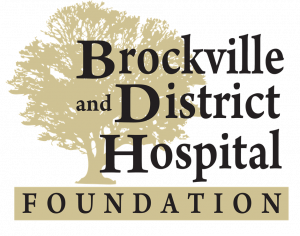Volunteering Goes Virtual During the COVID-19 Pandemic

It’s often said that volunteers are the backbone of a community. What happens when a public health crisis forces them to stay at home? The COVID-19 pandemic has dramatically altered the landscape of volunteering, both in terms of volunteer opportunities and volunteer availability, and the disruption is likely to continue for months to come.
In less fraught times, Canadians have been generous with their time and energy. According to Statistics Canada, “In 2018, over 12.7 million Canadians engaged in formal volunteering, with a total of 1.6 billion hours of their time given to charities, non-profits and community organizations—equivalent to almost 858,000 full-time year-round jobs.” Over 22.7 million people (almost three-quarters of Canadians aged 15 and older) spent 3.4 billion hours doing informal volunteering—equivalent to more than 1.7 million full-time year-round jobs.
Non-profit organizations often rely on volunteers to support their activities. A recent survey of more than 300 Canadian charities and non-profits, conducted by Ipsos for Volunteer Canada in late May and early June, found that many organizations had suspended, postponed or cancelled programs and services, or found new ways to deliver them while adhering to physical distancing guidelines. About half of respondents had transitioned some volunteer roles to remote delivery (virtual, online, phone), but 40% have suspended all volunteer engagement.
Other major challenges facing non-profits include staff layoffs or reduced staff hours, declining donations, cancelled fundraisers, and significant changes to how volunteers are recruited, trained, screened and managed.
Senior volunteers are staying home
Older adults (baby boomers and seniors) are among Canada’s most active volunteers – they contribute the most hours per person, on average. They’re also among those most vulnerable to COVID-19. As a result, many are self-isolating and have stopped or cut back on their volunteer activities.
Ipsos and Volunteer Canada surveyed more than 600 individuals about volunteering during the pandemic, and they found that, among the 24% of respondents aged 65 and older, the most commonly cited deterrents to volunteering included being over 65, not knowing where to find COVID-19 volunteering opportunities, living with someone over 65, having health issues, and living with someone who has health issues.
Shifting to virtual volunteering
Many non-profits have adapted by taking their volunteering roles and fundraising activities online. For example, several charity walks, runs and bike races are now virtual – participants pick a date, map out their own routes and raise money online. That’s how the employees of Bayshore Therapy & Rehab in Windsor, Ontario, did this summer’s Walk to Make Cystic Fibrosis History, an event they’ve supported for many years. The team raised an impressive $14,050. Combined with a 50% match from the Bayshore Foundation, they contributed more than $21,000.
Employers who usually engage their staff in charitable activities are also finding ways to promote volunteerism during the pandemic, despite not being able to hold in-person events. “We’re seeing companies organize skills-based opportunities like mentoring, and less-skilled activities like writing notes to seniors and wishing them well, or growing vegetables to donate to a food bank,” says Elizabeth Dove, Director of Corporate Citizenship at Volunteer Canada. “They’re also amplifying their employees’ stories – sharing what charitable activities they’ve been doing, and providing links so that others can join in.”
Dove says it’s inspiring that a lot of non-profits and employers have been able to keep volunteers engaged at such a challenging time. “The innovation coming out of non-profits and companies is so interesting and heartwarming. It’s made a number of opportunities for giving back much more accessible.”
If you’re not tech-savvy, don’t let the term “virtual volunteering” deter you, adds Dove. It simply means doing things remotely – activities such as making masks, knitting blankets, collecting non-perishable food, or doing outreach by phone or email.
If you can’t find a suitable role with your favourite charities, offer support within your circle of contacts, says Dove. “It’s just as important, maybe even more important, to look at people in your circle that you feel safe being in contact with and offering support by phone or email.”
Volunteering is good for you
Volunteering makes people feel good – something we can all benefit from during these stressful times. Volunteering has also been linked with a range of health and wellness benefits, including lower blood pressure, increased happiness and greater self-esteem. It also allows you to try new activities and learn new things.
“We know that volunteering increases a sense of belonging and well-being. Connecting with and understanding others creates better empathy. And volunteering is great for skills building,” says Dove. “It really is a two-way street.”
All the charities supported by the Bayshore Foundation have volunteer opportunities in their local community. Learn more about the charities we support.

































